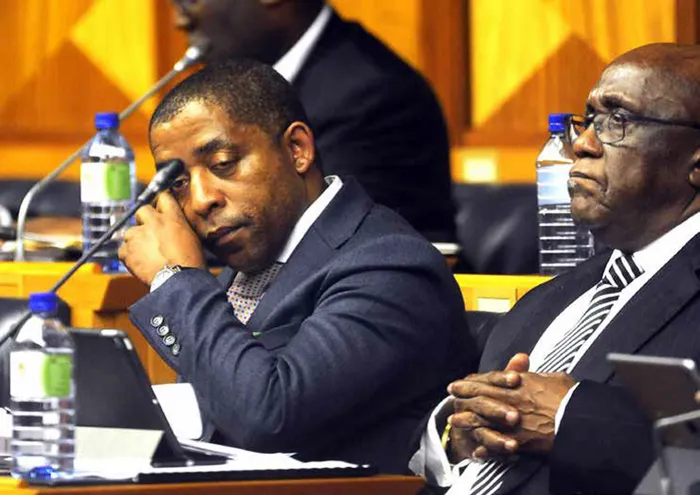
SAA chief executive Vuyani Jarana had to answer some tough questions about how the airline was managed when he appeared befor Parliament’s Standing Committee on Public Accounts. SAA chief executive Vuyani Jarana had to answer some tough questions about how the airline was managed when he appeared befor Parliament’s Standing Committee on Public Accounts.
CAPE TOWN - Vujani Jarana, the chief executive of cash-strapped South African Airways (SAA), painted a bleak picture of the airline’s finances, charging that, despite the R10 billion cash injection from the government last year, its balance sheet remained weak.
Jarana told the Parliament’s Standing Committee on Public Accounts (Scopa) that SAA needed a capital injection of at least R5bn worth of new capital this year to stay afloat and to continue its operations.
He said SAA had been forced to renegotiate the repayment of loans of more than R9bn to March next year since his appointment in November, as a result of the airline’s dire financial situation.
He said SAA’s debt was burdensome because it could not pay the principal amounts owed, adding that the airline still needed to service its debt and pay for its operational costs.
“We do need access to capital to sustain the operations, and we are having discussions with (the National) Treasury, as well as the banks, around how we have an open credit line,” Jarana said.
Scopa grilled SAA on its airline’s annual report and financial statements, as well as fruitless and wasteful expenditure.
The committee also wanted to know the value of SAA assets, the reason for delays in the submission of its financial statements, and questions about its status as a going concern over its going concern status.
Scopa chairperson Themba Godi said SAA needed to deal with its financial losses and rising expenditure as a matter of urgency.
“It is a very grave situation that we are in. We said we want to work with you to find solutions,” said Godi.
“I would imagine those are the first things you need to do. When you come to Parliament, demonstrate that you have a full grasp of the issues.”
Godi said SAA’s subsidiaries, SAA Technical and Air Chefs, were bleeding the airline dry.
He questioned the logic of these entities having their own boards and management teams.
“My sense is that those are the nests of the rot at SAA,” he said.
The committee put the SAA board and management under the spotlight about the Auditor-General's damning report for 2016/17 in which Audit General Kimi Makwetu gave a qualified audit opinion on SAA and subsidiary Mango.
“It is a very grave situation that we are in. We said we want to work with you to find solutions, ANC MP Ezekiel Kekana said SAA should provide give Parliament with comprehensive responses to the questions that it had raised.
“You do not get a sense that there is direction,” said Kekana.
Jarana also explained the controversial decision to beef up security arrangements for around certain executives, saying that the move followed threats to members of the executives after steps were taken to root out wrongdoing at the airline.
He said the measures were undertaken after members of the executive started receiving threats following forensic inquiries.
“Those were reported accordingly to police. At the time, I approached the board and said here is the issue of risk, and, taking into account the state of SAA at the time around the levels of trust, both in terms of intent and competence, I felt this was an issue that has to be dealt with by the board. The board invoked a process to look at securing security,” he said.
ANC MP Vincent Smith said the SAA’s board should pull up its socks with regard to the auditing function at the airline.
Referring to SAA board member and chairperson, chairman of the audit committee, Akhter Moosa, Smith said: “Unless you get your act together, we are duty bound to say that you are becoming derelict.”
SAA chief executive Vuyani Jarana had to answer some tough questions about how the airline was managed when he appeared before Parliament’s Standing Committee on Public Accounts.